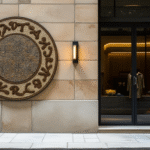Background on the Issue
The U.S. Department of State has issued new guidelines aimed at eliminating the freedom of expression for foreigners wishing to study in the United States. These changes come as part of a broader effort by the Trump administration to tighten immigration policies and scrutinize potential students’ social media profiles for any anti-American sentiment.
Policy Details
According to the new directives, effective immediately, non-immigrant F, M, and J visa applicants must adjust their social media privacy settings to ‘public’ so that U.S. consular officials can thoroughly review their online presence for any hostile content towards the U.S., its citizens, culture, government, institutions, or foundational principles.
A Department of State official, speaking on the condition of anonymity, explained that this enhanced social media review aims to ensure a comprehensive examination of every individual attempting to enter the U.S.
Context and Relevance
This policy stems from President Donald Trump’s executive order emphasizing stricter background checks for individuals entering the U.S., ensuring they do not exhibit hostile attitudes toward American citizens, culture, government, institutions, or foundational principles.
International student visas have been a focal point of the Trump administration’s immigration agenda. The government has revoked thousands of visas and attempted to bar certain universities, like Harvard, from accepting foreign students.
Marco Rubio, the head of U.S. diplomacy, has revoked visas for numerous students who participated in protests critical of Israel’s offensive in Gaza, deeming their activism contrary to U.S. foreign policy priorities.
These activities, according to Rubio, include supporting Palestinians and criticizing Israel’s conduct during the Gaza war.
In April, the Department of Homeland Security (DHS) announced that foreign students’ social media profiles would be examined for “anti-Semitic activity,” which could lead to visa denial.
For over a decade, the U.S. government has been reviewing social media profiles of those seeking to immigrate or obtain permanent residency in the country.
Key Questions and Answers
- What is the new policy about? The U.S. Department of State has introduced a policy requiring international students and exchange visitors to make their social media profiles public for thorough review by consular officials, ensuring no hostile content towards the U.S.
- Why is this policy being implemented? This policy stems from President Trump’s emphasis on stricter background checks for individuals entering the U.S., aiming to prevent those with hostile attitudes towards American values from obtaining student visas.
- Which visa categories are affected? Non-immigrant F, M, and J visas for academic and exchange programs are subject to these new social media review guidelines.
- What kind of content is being scrutinized? Officials will examine social media profiles for any anti-American sentiment, including hostility towards U.S. citizens, culture, government, institutions, or foundational principles.
- What are the potential consequences for applicants? Applicants with identified hostile content may face visa denial or additional scrutiny during the application process.






